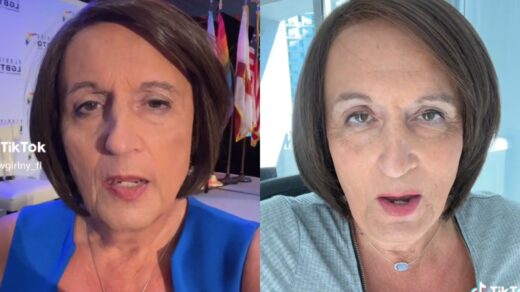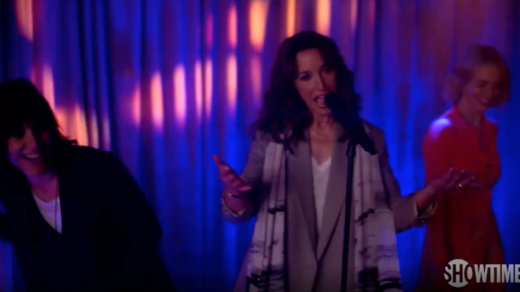Retired gay couple awarded for launching organization supporting LGBTQ+ elders of color
Author: Reverend Irene Monroe
On November 12, Paul Glass and Charles D. Evans of Falmouth were honored with this year’s AARP Andrus Award for Community Service. It’s AARP’s most prestigious and visible state volunteer award for community service. They are the first married and Black gay couple in AARP’s history to receive the award.
“I am beyond honored and grateful for this recognition. I feel we are not put on this earth to exist but to be of service to others and our community,” Evans told LGBTQ Nation.
Get the Daily Brief
The news you care about, reported on by the people who care about you:
When AARP Massachusetts was looking to honor the state’s top volunteer, Glass and Evans’s names rose to the top. They have made a difference in the lives around them, sharing their knowledge, experience, talent, and skills to enrich the lives of our community. Since childhood, their indefatigable spirit to give back to their community was ingrained in them.
“Paul and Charles have channeled the many negative experiences they endured into positive, healing, and inspiring volunteer work and leadership,” wrote Barrie Atkin of Swampscott, who nominated the couple.
“Their signature work co-founding LGBTQ+ Elders of Color in 2013 in Massachusetts was innovative, unusual, and courageous. No such organization existed at that time. In collaboration with the LGBTQ+ Aging Project, they identified the need and turned the need into a reality. They didn’t just co-found the organization along with others. Their continued leadership inspires many others to be involved.”
People of color are underrepresented and underserved when it comes to aging services and resources. Paul and Charles understand the intersectional challenges and complexities of growing older as African-American gay men.
LGBTQ+ senior communities with multiple identities confront multiple challenges. Their organization, LGBTQ+ Elders of Color, fills the gap missed by Massachusetts LGBTQ+ organizations and local, state, and federal public health systems. Outreach is essential because the challenges facing Black LGBTQ+ seniors intensify with age.
According to Services and Advocacy for GLBT Elders (Sage) and the Movement Advancement Project (MAP), approximately one-third of LGBTQ+ elders live at or below 200 percent of the federal poverty level, with 40 percent being Black.
These seniors often feel more vulnerable, invisible, and isolated by retirement. Historical and ongoing discrimination has created significant lifelong challenges for this demographic: limited wealth and savings, low wages, few labor protections, housing instability, food insecurity, stigma, immigration, HIV status, and higher mortality from treatable conditions. All have contributed to a lack of well-being and a lower quality of life.
By 2050, POC seniors will comprise over 40 percent of the elderly population, and approximately 3 million seniors will identify as LGBTQ+. With this projection, specific cultural and linguistic competence training and nondiscrimination policies are needed to support a rapidly growing demographic group that has experienced a lifetime of health, educational, and economic disparities.
In 2018, Massachusetts legislators passed “An Act Relative to LGBT Awareness Training for Aging Services Providers” mandating LGBTQ+ cultural awareness training for all state-funded and licensed aging service providers within 12 months of employment.
The challenges experienced by aging LGBTQ+ people of color can only be remedied by policymakers and aggressive programs invested in expanding care and services specifically targeted to these racially, ethnically, and culturally diverse communities.
These Dapper Dans, as I fondly dubbed them, provide unique and invaluable resources for LGBTQ+ elders of color. Their impact reverberates throughout the Bay State.
“Since relocating to Massachusetts on Cape Cod in 2002 and our subsequent retirement, we have enriched our lives with stronger connections to the community through outreach and advocacy,” Glass told the audience at the award ceremony. “To some, retirement may mean the opportunity to relax and take it easy. To us, retirement has provided an opportunity to find new ways to help others.”
Without the foundation people like Paul and Charles have laid for LGBTQ+ elders of color, we wouldn’t be the vibrant, visible, and growing community that we are.
Actual Story on LGBTQ Nation
Author: Reverend Irene Monroe






